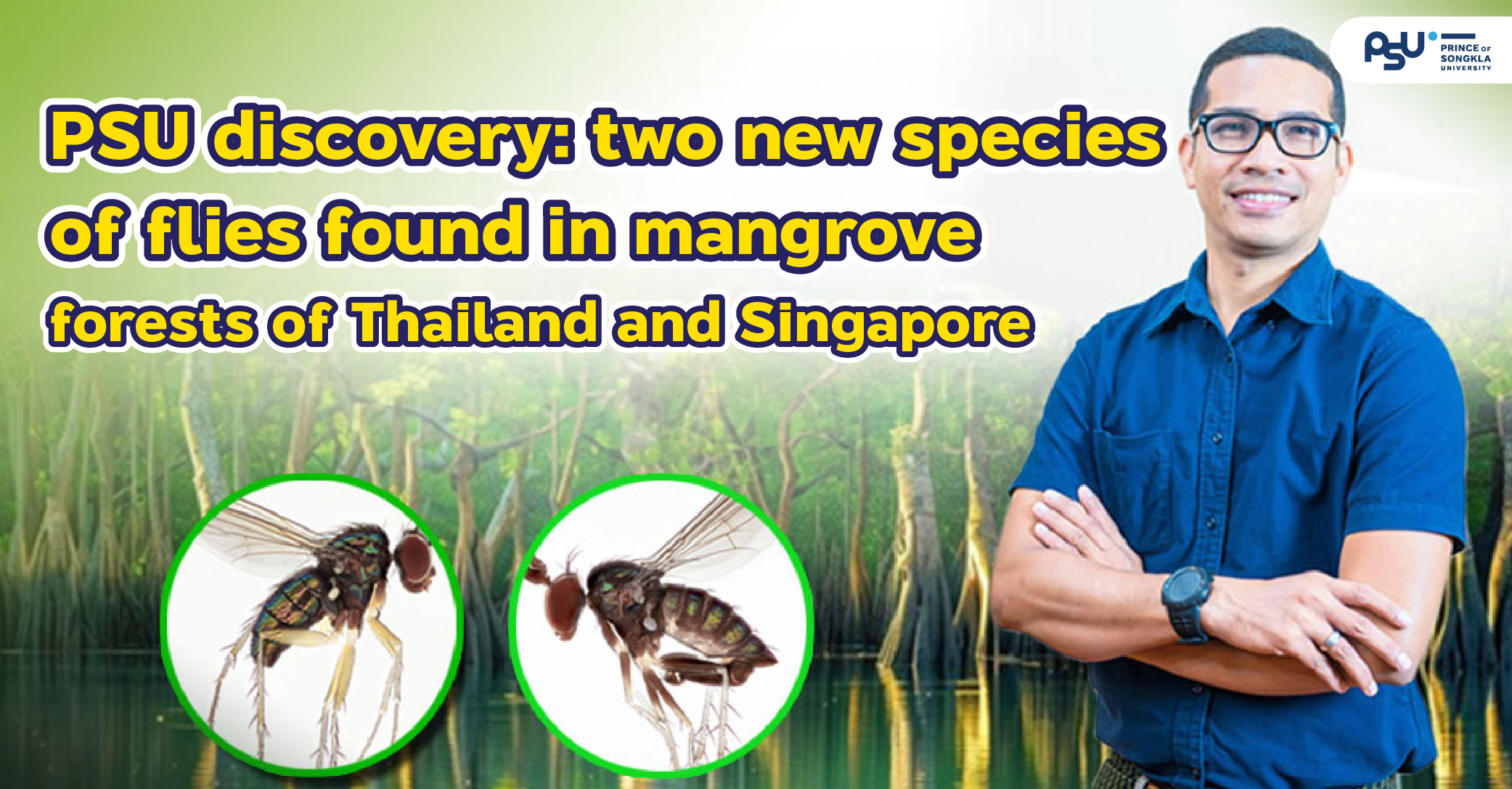
Dr. Abdullah Samoh, a researcher at Prince of Songkla University's Princess Maha Chakri Sirindhorn Natural History Museum and the regional coordinator of the Plant Genetic Conservation Project in Southern Thailand at PSU, has collaborated with Dr. Patrick Grootaert, a researcher at the National Biodiversity Centre, NParks, Singapore, and the Lee Kong Chian Natural History Museum (LKCNHM) at the National University of Singapore, along with the entomology research unit of the Royal Belgian Institute of Natural Sciences (RBINS). Together, they have discovered and described two new species of long-legged flies: Hercostomus obtusus, Samoh & Grootaert, from Thaimuang District, Phang Nga Province, and Hercostomus squamatus, Samoh & Grootaert, from Pakbara, Langu District, Satun Province. Additionally, they have reported four new records for Thailand: H. brevicornis, Zhang, Yang & Grootaert, 2008; H. brevidigitalis, Zhang, Yang & Grootaert, 2008; H. lanceolatus, Zhang, Yang & Grootaert, 2008; and H. plumatus Zhang, Yang & Grootaert, 2008.

The specimens were collected from mangrove forests in southern Thailand and Singapore. Long-legged flies are predators in these ecosystems, helping to control the populations of nuisance insects such as mosquito larvae and midges, whose larvae inhabit mangrove areas. However, the study of these flies remains incomplete, with many species yet to be discovered. This highlights the importance of Thailand's mangrove ecosystems in supporting biodiversity, especially for organisms not yet known to science.




https://www.mapress.com/zt/article/view/zootaxa.5446.2.2 และ DOI: 10.11646/ZOOTAXA.5446.2.2


